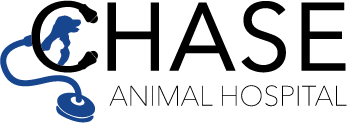Pet Health Articles
-
Hydroxyzine is given by mouth or injection and is used off label to treat allergic or itchy conditions. Give as directed. The most common side effect is sedation. Do not use in pets that are allergic to it or cetirizine, or pets that have heart failure, urinary obstruction, or stomach obstruction. If a negative reaction occurs, please call your veterinary office.
-
Hypochlorous acid (HOCl) topical is used for the management of skin conditions such as wounds, abscesses, cuts, abrasions, skin irritations, ulcers, post-surgical incision sites, and burns. It may be used to prevent or treat bacterial skin infections, including methicillin-resistant staphylococcus aureus (MRSA). Hypochlorous acid also has antifungal and antiviral properties and is reported to reduce inflammation, pain, and itching.
-
Idoxuridine is an antiviral topical medication used to treat viral infections of the eye, such as feline herpesvirus-1 in cats. Idoxuridine comes as eye drops or can be compounded by your veterinarian into an eye ointment. Give as directed. Side effects of idoxuridine include eye irritation. Pregnant women should NOT handle this medication.
-
Ilunocitinib (brand name Zenrelia®) is a medication used to control pruritus (itching) associated with allergic dermatitis and control of atopic dermatitis in dogs at least 12 months of age that are up-to-date on vaccinations. It is labeled for use in dogs only. Ilunocitinib comes in tablet form.
-
Imatinib is given by mouth and is used off label to treat certain types of cancers in dogs and cats. Give as directed. Side effects may include nausea, vomiting, muscle pain, diarrhea, skin rash, or lack of energy. Do not use in pets that are pregnant or nursing. If a negative reaction occurs, call the veterinary office.
-
Imepitoin (brand name Pexion®) is a behavior modification medication used to treat noise aversion in dogs. It may also be used to treat noise phobias in dogs or as an anticonvulsant to treat idiopathic epilepsy in cats and dogs. Its use may be off label depending on condition, species, and jurisdiction. Imepitoin comes in tablet form.
-
Imidacloprid and pyriproxyfen (brand names Advantage®II, Advantage Plus®, Provecta®II) is a topical (spot-on) antiparasitic drug used to repel and kill fleas and lice in dogs and puppies that are at least 7 weeks of age and weigh at least 1.36 kg (3 lb). This medication is labeled for treatment of flea infestations in cats and kittens that are at least 7-8 weeks of age and weigh at least 0.9 kg (2 lb) or 2.3kg (5 lb), depending on the product. Imidacloprid and pyriproxyfen comes in topical solution form that is applied directly to the skin. Do not confuse this medication with K9 Advantix®II, Provecta® Advanced, or Activate®II, similar products labeled for use in dogs only, as those medications contain permethrin, which is toxic to cats.
-
Imidacloprid oral is given by mouth to treat flea infestations in dogs only. Side effects are uncommon but may include vomiting, soft stools, decreased appetite, or difficulty walking. Do not use this medication in cats, in puppies less than 10 weeks old or weighing less than 4 pounds, or in pregnant or lactating dogs.
-
Imidacloprid topical is used on and off label and is applied topically to the skin to treat flea infestations in cats, dogs, and ferrets. It is frequently used in combination with other medications to treat a variety of parasites. Side effects are uncommon but may include irritation at the application site or drooling, shaking, vomiting, and decreased appetite if the medication is accidentally ingested. Do not use combination products in young pets. Certain combination products should not be used in cats.
-
Imidacloprid with flumethrin (brand name Seresto® collar) is a topical antiparasitic drug contained in a collar used for control of fleas, ticks, and chewing lice on dogs and puppies at least 7 weeks of age. This medication is labeled for control of fleas and ticks in cats and kittens that are at least 10 weeks of age. Imidacloprid with flumethrin comes in a collar impregnated with the medication that, if used properly, is effective for 8 months.

